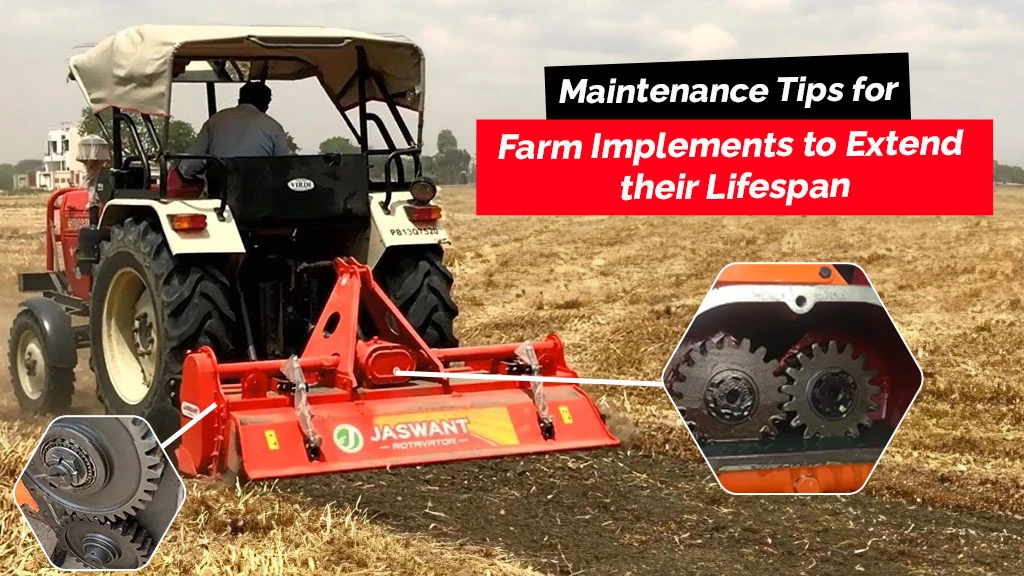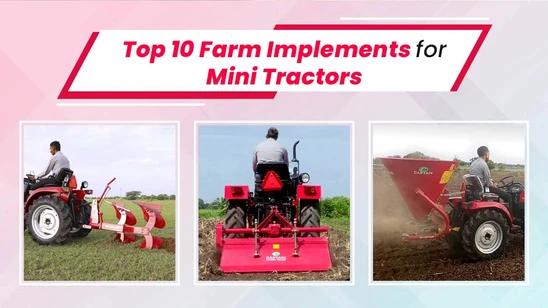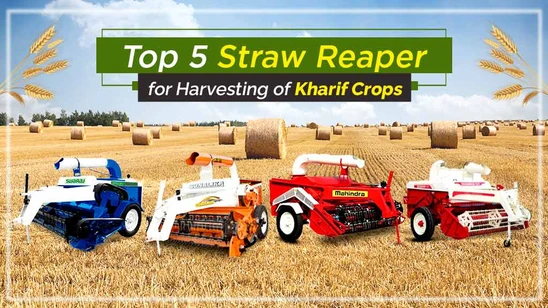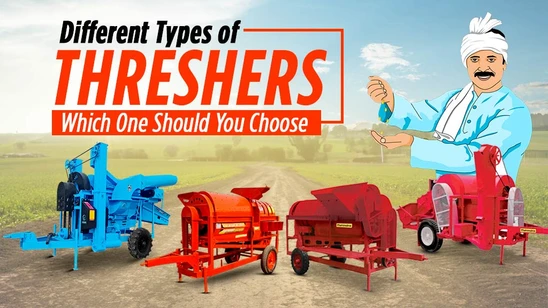Maintenance Tips for Farm Implements to Extend Their Lifespan

Table of Contents
- Introduction
- Why Maintain Farm Implements Regularly?
- Top Tips for Maintaining Farm Implements
- Conclusion
Introduction
Farm implements play a crucial role in modern agriculture, helping farmers perform a wide range of tasks efficiently. These tractor implements are a significant investment for farmers in India. To ensure they remain productive and cost-effective in the long run, regular maintenance is essential.
Why Maintain Farm Implements Regularly?
Maintaining farm implements is essential for several reasons, as it directly impacts farm productivity, efficiency, and the overall longevity of the equipment. Here are the key reasons why it is essential to maintain farm implements:
- Well-maintained implements operate at their peak efficiency, ensuring they perform their intended tasks effectively.
- Properly maintained implements can work faster and more efficiently, allowing farmers to complete tasks more quickly.
- Regular maintenance prevents the necessity of expensive repairs or replacements.
- Maintained implements are more likely to deliver consistent results, improving the quality of the work.
- Maintained implements are less likely to malfunction or break down during operation, reducing the risk of accidents or injuries to farm workers.
Top Tips for Maintaining Farm Implements
The maintenance tips for farm implements to extend their lifespan includes regular cleaning and inspection, grease and lubricate parts, and monitor fluid levels, among others.
Cleaning and Inspection
One of the simplest yet most overlooked maintenance practices is cleaning the farm implements after each use. Removing dirt, debris and plant residues will prevent corrosion and rust formation. Use a pressure washer or a hose to wash off the implements thoroughly.
Additionally, store the implements in a clean and dry area, away from the elements. Moisture can cause rust, and exposure to extreme temperatures can damage certain components. Addressing any issues punctually will avoid further damage during operation.
Grease and Lubricate
Regular greasing and lubrication are crucial for the smooth functioning of farm implements. Every moving part, bearing and joint should be adequately lubricated. It reduces friction, heat, and wear. Refer to your implement's user manual or consult a technician to identify the appropriate lubricants and recommended intervals for greasing.
Maintain the paint on your implements to prevent rust and corrosion. Touch up any chipped or scratched areas with rust-resistant paint. This not only keeps your equipment looking good but also protects it from the elements.
Inspect and Replace Parts
Regularly inspect the different parts of your farm implements to identify any signs of damage or wear. Look for loose or missing bolts, cracks, dents, or bent components. These issues can lead to accidents and further damage if left unattended. Replace damaged or worn parts promptly to prevent further deterioration and to ensure safe and efficient operation.
For implements with blades or cutting edges, such as MB ploughs and Rotavators, keep them sharp. Dull blades require more power to cut through soil or vegetation, leading to increased fuel consumption and wear on your tractor. Regular sharpening ensures efficient operation.
Be sure to check the following:
- Blades for sharpness and wear
- Moving parts like gears for wear and tear
- Hydraulic hoses for leaks
- Electrical wiring for damage
Monitor Fluid Levels
Fluids have a vital role in the performance of farm implements. Check and maintain proper levels of engine oil, hydraulic fluid, coolant, and fuel. Insufficient or contaminated fluids can cause engine or hydraulic system failures. Regularly change the fluids according to the manufacturer's recommendations to keep the implements running smoothly.
Proper Handling and Operation
Improper handling and operation can significantly impact the lifespan of farm implements. Always follow the user manual and safety guidelines provided by the manufacturer.
Avoid overloading the implements beyond their capacity, as it can strain the mechanical components and lead to premature wear.
Operate the implements at appropriate speeds and avoid abrupt movements that cause unnecessary stress.
Regular Maintenance Record Keeping
Maintaining a detailed record of all maintenance activities can help track the history of your implements, identify potential recurring issues, and schedule future maintenance. This record can also be helpful when reselling or trading your farm implements.
Always refer to the manufacturer's operator's manual for maintenance guidelines and schedules specific to your implements. Following the manufacturer's recommendations ensures proper care and operation.
Preventative Maintenance
Implement a preventative maintenance schedule to address common wear and tear issues before they become major problems. It may include replacing filters, belts, blades, and other consumable parts according to the manufacturer's guidelines. Regularly inspect electrical connections and wiring for any signs of damage or corrosion.
Seek Professional Help
While farmers can perform basic maintenance tasks, seeking professional help for more complex repairs or issues beyond their expertise is essential. Trained technicians can diagnose problems accurately and perform necessary repairs, ensuring the safety and optimal performance of the implements.
In addition to these general maintenance tips, there are also some specific things you can do to extend the lifespan of certain types of farm implements:
- Ploughs: Sharpen the blades regularly and check the plough for any signs of damage or wear and tear.
- Tillers: Lubricate the moving parts regularly and check the tynes for wear and tear.
By adopting these maintenance tips, farmers can extend the lifespan of their farm implements and save considerable money in the long run. Here are additional tips for extending the lifespan of your farm implements:
- Use the right tools for the job. Do not try to use an implement for a task that it is not designed for. It can damage the implement and shorten its lifespan.
- Have your implements serviced regularly by a qualified professional. A qualified professional can inspect your implements for any indication of damage or wear and make any necessary repairs or adjustments.
Conclusion
Regular maintenance is vital for extending the lifespan of farm implements. By implementing these maintenance tips, farmers can maximise the efficiency, safety, and longevity of their equipment, thereby saving money in the long run and ensuring a productive farming operation.


Related Blogs















